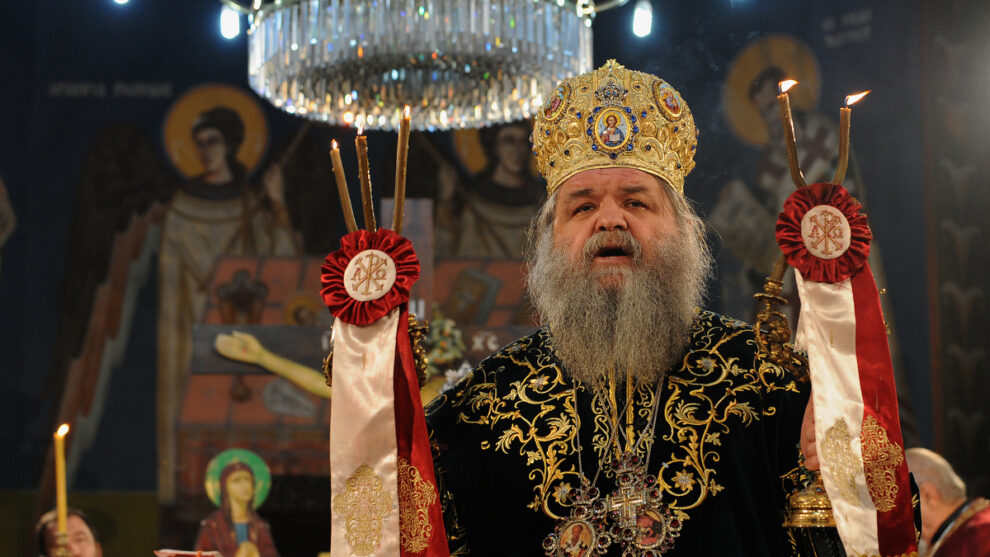Thousands of people are expected to attend a big Church-organised protest in Skopje on Thursday as the country’s biggest religious community, the Macedonian Orthodox Church, called on the government to shelve adoption of the Gender Equality Law and the Law on Birth Registry.
The Church insists that if they are adopted, the two laws would “open a Pandora’s box” from which “different genders could emerge every day”.
The call for the protest, the first such organised directly by the Church, came on Friday, straight from the Church’s head bishop.
Archbishop Stefan insisted their objections had been ignored and that the new provisions would harm “all citizens and especially women and children”.
It came just a day before Saturday’s Skopje Pride, which this year is held under the slogan “Lound and Proud”, amid a heating-up of Church resistance to the legal provisions that have been in the works for about a year.
While the Church insists that it is receiving support for its protest from other religious communities in the country and from public figures, including singers and performers, the Platform for Gender Equality and the Network Against Discrimination, both umbrella human rights organisations, condemned the call for the protest, insisting it is not the Church’s place to interfere in individual human rights.
The Helsinki Committee for Human Rights on Wednesday issued safety guideline for LGBT people, advising them to steer clear of the protest in the city near the government HQ.
The biggest opponenent of these provisions over the past year has been Bishop Jakov Stobiski of Strumica.
On Monday, North Macedonia’s Anti-Discrimination Commission ordered Stobiski to apologize publicly to LGBT individuals for discriminatory remarks in his speeches. Over the past few weeks, he has called members of the community “sick” and “Satan’s emissaries”.
He refused to apologize, insisting that the Church has shown tolerance towards such individuals. He also insisted that if the laws are adopted, it might be good for a few but would be “oppressive” for the 99 per cent of the population that do not accept such things.
“We do not separate gender as an attribute of sex, as its social construct. Analogously, if there are two sexes, there are also two genders. These laws bring us a monstrous construct; they are opening a Pandora’s box so that different genders could emerge every day and everyone can be whatever they want … We don’t like it and we don’t accept it,” he said.
He added the the Birth Registry bill was already in parliamentary procedure and that the bill on Gender equality was just one step away from entering parliament for what he alleged would be a sneaky adoption.
But the Labour and Social Policies Minister, Jovanka Trencevska, on Tuesday told Radio Free Europe that both bills are still in a public debate and have not entered parliament yet.
She said both are still being drafted, taking the model of other EU countries and neighbour states that have already adopted similar progressive regulations.
The draft bill on Gender Equality, which has been debated for almost 10 months, attempts to separate gender and sex.
It states that “sex” refers to the biological and psychological characteristics on the basis of which people are defined as female or male, while “gender identity” refers to the inner and individual experience of one’s own gender that each person feels about themselves, and which may or may not coincide with the sex assigned to them at birth.
The Birth Registry Law, if adopted, will allow every adult individual to make a legal gender change based on their preference, merely by submitting a statement verified by a public notary.
The bill would for the first time recognize that trans people in North Macedonia have a gender identity that does not correspond to the sex entered in the birth records.
Source: Balkan Insight










